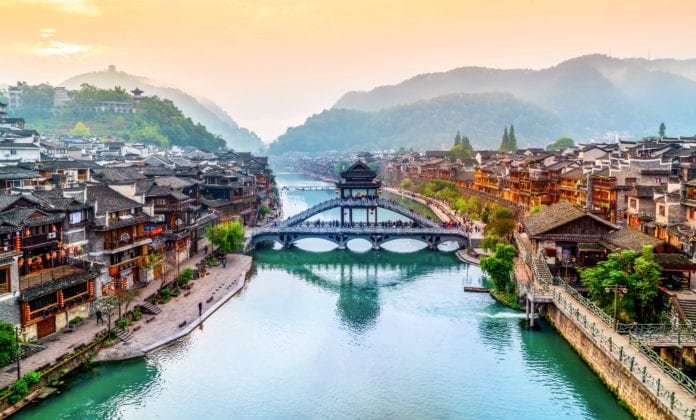27 January 2015 – El Economista
Spain is now very attractive for Asian capital. And so, investors are looking to build authentic Chinese cities in our country. Several Asian funds and companies have been looking for large developments of up to 2,000 homes in Spain, which they will then market in their own countries.
The aim of these investors is to create a genuine Chinatown with a complete set of services, including schools for Chinese children, restaurants, beauty salons and shops run by Chinese businessmen, which would sell products from their own country.
Spain has not traditionally been one of the main destinations for Asian investment, their money has typically ended up in countries such as Canada, USA, Australia, UK and France. Nevertheless, the collapse of housing prices, which have fallen by up to 40%, caused Chinese investment in Spain to double in 2014 over the previous year. It is estimated that Chinese investors purchased 6.5% of all of the homes sold in Spain last year.
Their interest in Spain is growing and although their aims are clear, it is nevertheless almost impossible for them to find developments of the size that they are looking for that are entirely for sale.
According to industry experts, these investors will have to understand that their “city” will have to be smaller. “What they are looking for, in a best case scenario, are developments containing between 200 and 500 homes”, they say.
Undoubtedly, this could represent a very good opportunity for the clean-up of the banks, which are accumulating thousands of residential assets and developments in their portfolios, which have been half completed and foreclosed. Investors are aware that these financial institutions need to offload properties and therefore they hope to acquire properties a bargain prices and then resell them, grouped in packs, to other Chinese citizens.
The Golden Visa
This is where the Golden Visa comes into play. The concept originates from the Entrepreneurs Law, which was approved in September 2013 and which puts a price on Spanish residency. This legislation allows non-EU buyers who purchase property for an amount that exceeds half a million euros to obtain Spanish residency. Although it is worth noting that the law does require them to have that amount of money in cash and does not allow them to resort to any kind of financing.
Moreover, the new investors cannot have a criminal record in Spain, or be present illegally in the country. They must also have private health insurance and sufficient financial resources to support the members of their family for the duration of their residence in Spain.
Thus, the intention of these Chinese companies is to sell groups of homes so that their price reaches the €500,000 threshold. In this way, buyers will be able to acquire a residence permit and therefore do business across the European Union.
The real estate sector looked forward to the arrival of the Golden Visa with baited breath as a means of stimulating activity in the market, however, for the moment, it does not seem that this visa has resulted in the entry of much capital into Spain. One of the main reasons is the failure by the Chinese Government to market the initiative, something which it is doing for some of our neighbouring countries. Portugal is ahead of us in this regard, since its Government has taken steps in China to sell the advantages of investment in its country. Thus, during the first hald of 2014, Chinese investment in Portugal amounted to €33 million, but following President Aníbal Cavaco Silva’s visit to China, investment increased to €760 million during the second half of the year.
Patricio Palomar, Head of Alternative Investment at CBRE stresses, however, that it is important not to loose sight of two aspects when drawing comparisons. “In Portugal, the measure was introduced much earlier, and the two countries have traditionally had strong ties, primarily due to the Portuguese colony of Macao”.
Indeed, one of the richest people in Hong Kong and Macao is Stanley Ho Hung Sun, the largest casino owner, who purchased the Casino Estoril many years ago and has other significant businesses in Portugal. Stanley Ho has Portuguese citizenship and makes investments across Europe through his company in Portugal.
Regarding the arrival of investors such as Wang Jianlin, who plans to invest €3,000 million in the development of a macro-residential project in Madrid, Palomar says that “over the medium term, it is likely that we will see some of the developments being designed and constructed to suit the taste of the great Asian fortunes, and that the most luxurious units will be sold in Asia, and so capital inflows from there will be boosted significantly”.
Original story: El Economista (by Alba Brualla and Virginia Martínez)
Translation: Carmel Drake

 Portugal
Portugal  Italy
Italy  Greece
Greece 




